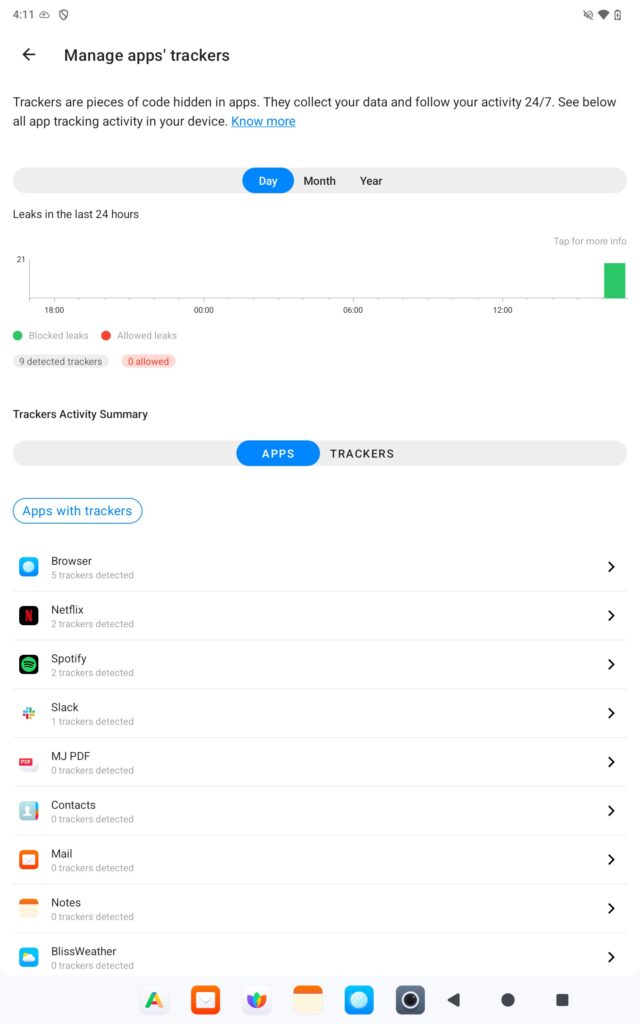There were times when a side-by-side comparison found Google’s results to be more aligned with what I had in mind. However, I quickly appreciated Qwant’s lack of AI-generated responses, Google Maps listings, rows of advertisements, and other distractions ahead of actual results. For example, the top results for a search for “Brooklyn rooftop bars” with the Qwant-based engine were roundups from different blogs and publications. Google’s top results were a map, a few bars’ individual websites, posts from Reddit and Instagram, and only two curated lists (one from a news publication and another from Yelp).
The tablet is weaning me off of Google Search, but I’ll likely download Google Maps soon. Murena’s tablet comes with Magic Earth, the only non-open source app preloaded onto the device. However, without Street Views, speedier response, more detailed public transit information (like the names of stops you have to pass), and easier ways to find points of interest, like restaurants, Magic Earth is not sufficient for replacing Google’s alternative—despite Maps’ low privacy rating.
More privacy, please
Despite the inconveniences of a truly Google-free tablet, using Murena’s Pixel Tablet encouraged me to push for more online privacy. It’s proof that privacy-centric tablets and other gadgets are not only possible, but also worthwhile. With Big Tech often failing to protect users, gadgets that don’t spy on you deserve a bigger spotlight.
One of /e/OS’s best features is its privacy reports, which provide an overview of the apps tracking you.
An example of a privacy report.
Credit:
Scharon Harding/Murena
The tablet’s privacy menu also has a toggle for hiding your IP address, although Murena notes that you may want to think twice before sending emails, as “your address may end [up getting a] permanent ban from your provider.” Both features give users more control without introducing complexity and place a much greater emphasis on understanding online privacy than what you find among other tablets.
Murena’s Pixel Tablet, while not perfect, proves that a privacy-forward tablet doesn’t have to come with trade-offs. Devices like this make privacy a competitive advantage that other companies should emulate.
Source link


